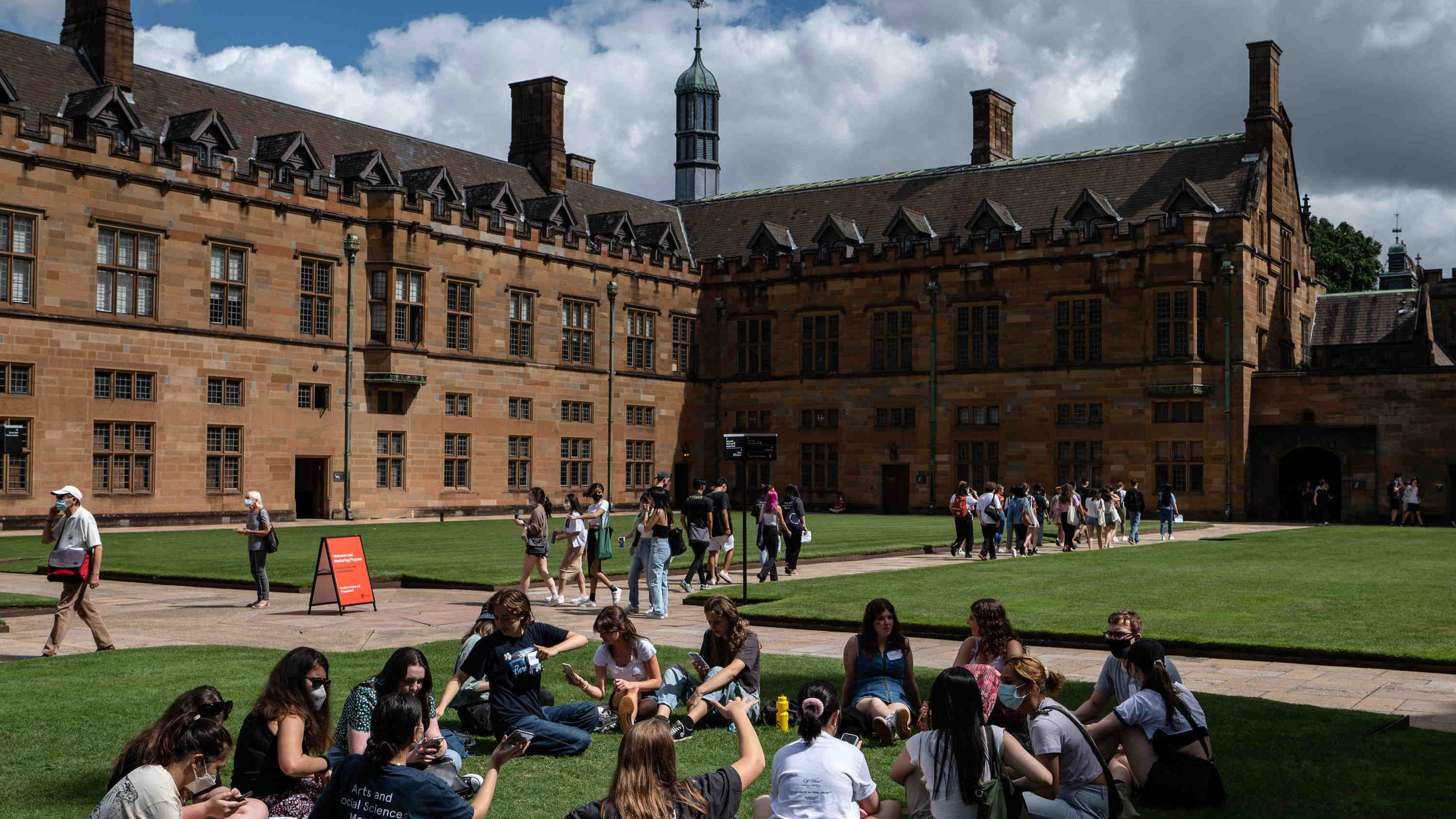Three million Australians who have a student loan are about to be saddled with a nasty bump in the amount they owe, thanks to soaring inflation.
While HECS or HELP loans do not attract interest like a credit card, they are pegged in line with inflation through a process called indexation.
Each year in June, student debts are adjusted to account for inflation.
READ MORE: Three nine-year-olds among dead after US school shooting

This year, the indexation rate is predicted to be about 7 per cent, according to modelling shared by Greens Senator Mehreen Faruqi.
On an average $25,000 student loan, this would add an extra $1500 in debt.
A Senate inquiry is currently examining a bill introduced by Faruqi which would freeze student debt and raise minimum repayment income thresholds.
The income level at which Australians are required to begin paying off their HELP debt also rises with inflation - for the 2022–23 income year it was $48,361.
"In 2023, young university graduates will be the worst affected by the largest increase in student debt indexation in decades,'' the National Union of Students said in a submission to the inquiry.
"Students and graduates need immediate financial support to combat the cost of living crisis by pausing indexation on HELP debt repayments."
According to last year's federal budget papers, total student debt reached $47.4 billion in June 2022.
The average time it takes to repay a HELP debt is now almost a decade - 9.6 years.
'I doubt I'll ever keep up'
Victorian teacher Tias Allard, 36, said he had been left with a huge student debt of $62,500 after completing several degrees in psychology and linguistics at university, including a PhD in the latter.
Allard said he initially planned to get a job in psychology, but this hope was scuttled when he was not accepted to study for his masters degree.
His debt, however, remained.
After being unemployed for much of the pandemic, Allard is now working as an ESL (English as a second language) teacher, which requires a one-month certification course.
If his student loan is indexed at the expected rate of 7 per cent in June, he will be saddled with another $4375 in debt.
Last year, indexation added 3.9 per cent to Allard's loan, meaning his debt increased even after his yearly repayments were deducted.

Allard said his student loan was adding to the financial stress felt by him and his partner.
"Every day, I wake up and it's the new worst day in history to be looking for a place to live. At the same time, my study debt is continuing to soar," he said.
"I doubt I will be able to keep up with the indexation.
"Mostly, I just feel stupid for believing what I was told as a child that I needed to go to uni for a good job, only to end up with a debt that goes up $2500 a year because some people who got free educations thought it would be fair to saddle subsequent generations with life-long debt for the same privilege."
Allard said it was especially galling to see his student debt increasing by so much at a time when wages were stagnating and banks were offering interest rates at below inflation levels.
Melbourne mum Chrissie, who asked for her surname to be withheld, has a student debt of more than $65,000.
Not knowing what she wanted to do after leaving school, Chrissie tried many subjects at university.
After abandoning an arts degree, she later came back as a mature age student and completed a Bachelor of Communications in 2020 during lockdown.
Chrissie, who now works as a copywriter, said she wished she had understood the financial implications of her student loan from the beginning.
"It's sort of like giving a teenager a credit card, at that age you don't have the financial literacy you need.
"And you had all these people around you saying, 'Oh, you don't even notice it when just a little bit comes out of your pay.'"
Chrissie said the amount she owed on her HELP loan hardly seemed to be going down, despite all of her repayments.
Now, as a mother-of-two small children, Chrissie said she was working less, which limited her potential to make use of her degree.
'It doesn't seem fair," she said.
Debts affecting home loans
The Senate inquiry into the proposed student loans legisation comes as mortgage brokers say ballooning student debts are yet another obstacle making it harder for young people to enter the property market.
Adelaide mortgage broker Sam Neville, from Mortgage Choice, said she was now seeing some clients with student loans of more than $100,000.
While the loans were interest-free - and therefore often not considered a priority to pay off - they could still affect a borrower's ability to get a home loan, she said.

"The indexing this year won't affect the repayments for a loan, because those are based on the income that you make," Neville said.
"But what it will affect is your debt-to-income ratio.
"So, if your HECS debt indexes by more than you pay off, then your total debt position has increased.
"We're having a lot more conversations, when it's a smaller debt, about paying it out prior to buying the property and, ironically, using some of their home savings, money they had set aside for a deposit, to pay off their HECS, so that their borrowing power goes up."
Neville said that one aspect of student loans many people did not realise was that compulsory repayments were not deducted from student or graduate's balance immediately.
Instead, the Australian Tax Office kept the year's worth of repayments and only deducted them from the debt once a tax return was lodged and indexing had already been applied.
Sign up here to receive our daily newsletters and breaking news alerts, sent straight to your inbox.
Source: https://ift.tt/VYX8NgA
Comments
Post a Comment